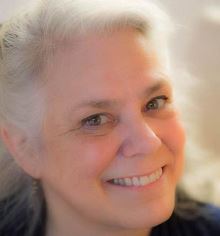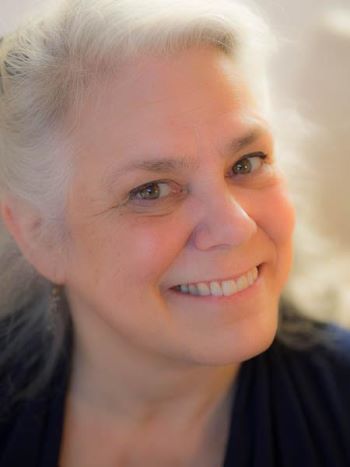Orcas Issues is proud to introduce a new, occasional column by Sally Buchanan, called “Orcas Voices.” In these columns, Sally will write about the people who speak for ‘the Orcas spirit.’ Her first column features Meg Massey.
— by Sally Buchanan–
Recently a new resident of Orcas confided that even though she has been here only six weeks she knows that she wants to stay permanently. The last few years she has worked in the hospitality business all over the U.S. exploring parts of the country she had always wanted to see: national parks, Alaska, the Southwest and New England. But she says now that she has found Orcas she is ready to settle in and make a life here. Her criteria were simple. She wanted a small community, friendly people who are easy to meet, a library, a book group, and a way to earn a living.
Understanding what makes this gem of an island so special for a lot of people is open for discussion. Certainly its beauty and its location embedded in the Pacific Northwest contribute. The growing conditions are as good as the veggies. The schools have fine teachers and extra funding supported by volunteers. Parents have choices to meet the needs of their kids. There is a lot of rain for those who love it and lots of sun for those who don’t. Sometimes a little snow enlivens life. Animals at the shelter are quickly adopted. A large group of non-profits works hard to contribute to the quality of life in the community. Anonymous individuals quietly step forward when a critical need is identified. And maybe that is the answer. Orcas Islanders care and they care enough to try to make the community better for all.
Meg Massey moved to Orcas from Vermont a decade or so ago with experience as a high school guidance counselor. When she arrived on Orcas she found that many of the same concerns were challenging young people here as well as in Vermont. For several years before the move she had been working in a high school listening to students and parents as they tried to solve the issues caused when a senior did not want to go off to college or university immediately after graduation and parents wanted them to do just that. Being a ski bum instead of a doctor causes alarm for parents who are afraid that education will be dropped permanently. Or a student may feel that college is not a direction they are comfortable pursuing. Working with individual students to help them identify their passions and to talk about how to achieve the goals associated with them helps all to understand and talk about how to reach those goals. It may well be, for instance, that a student only wants to ski for a year and not a lifetime before moving on. Parents also need to know that many studies indicate that, with guidance, a year or two of timeout after high school graduation pursuing a passion, serving their country, working to help others, or trying out a job, offers a chance for young people to mature and to think about how they want to plan for their futures. Many countries require that their high school graduates take two years off before entering college. Meg points out that most universities in the United States, once you are accepted, will also accept a deferred enrollment of a year or two. In fact many encourage it.
In the process of working with students and parents Meg has found that reaching a mutual understanding takes time and compassion as well as a career full of experience and a treasure trove of resources. She gently reminds parents that no one can be forced to be who they don’t want to be no matter how determined a family. And the 40% dropout rate for college freshmen in the United States also means that a great deal of carefully saved money will be lost if that happens. With all sides working together a compromise solution can very often be reached. A challenging path and connections to achieve it can usually be found no matter what the goal.
Meg reminds young people of the reality of life as a ski bum or the difficulty of finding a job in Paris that will support even a mediocre lifestyle. She points out that the determination to run a small business, for instance, requires more than determination. Additional education is essential. Or advancement in a chosen field will not happen without a college degree or a specialized certificate program. Again, Meg can help by pointing out the many choices available and connections that are possible with new opportunities developing all the time. She is also aware of the need of many students for financial resources, grants, scholarships, work/study programs and other alternatives that students have pursued successfully like taking one class at a time to working one year to take the next one off to attend school. The essential thread that runs through twenty-first century life is that training and education are more and more necessary for success no matter how it is defined. She strives to help young people refine their interests and to identify ways to pursue them in this fast-changing world.
Meg Massey is assisting young people and their families to negotiate these difficult passages with humor, thoughtfulness and success. She is one reason why Orcas Island is a special place to live.
**If you are reading theOrcasonian for free, thank your fellow islanders. If you would like to support theOrcasonian CLICK HERE to set your modestly-priced, voluntary subscription. Otherwise, no worries; we’re happy to share with you.**










Thanks Meg. Like you, I was a HS counselor in Seattle & feel positive (now that we’re retired) moving to Orcas Island for the rest of our life. I’ve always connected w/ why students wind up unhappy adults when more conversations when they’re young can get their steps better. Hope I meet you sometime. Ellen